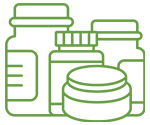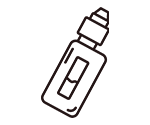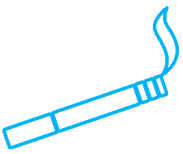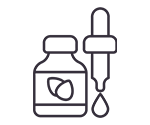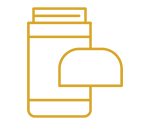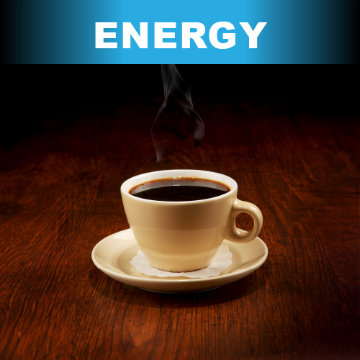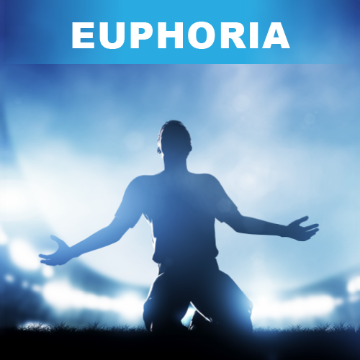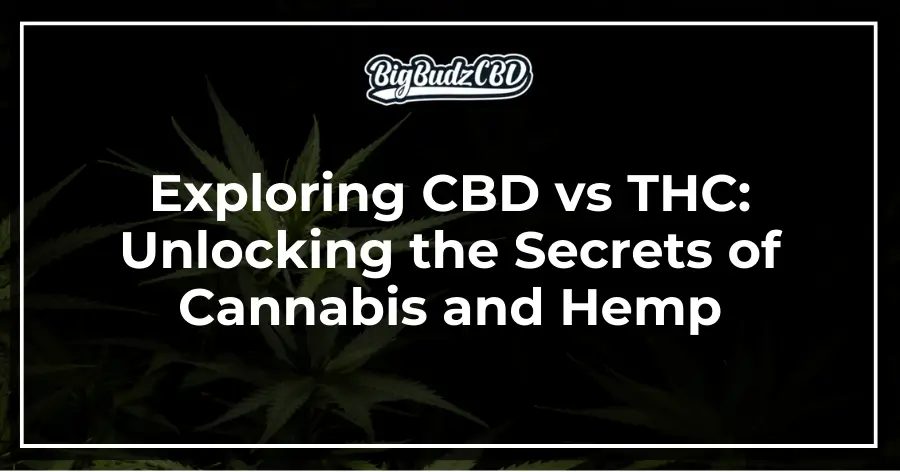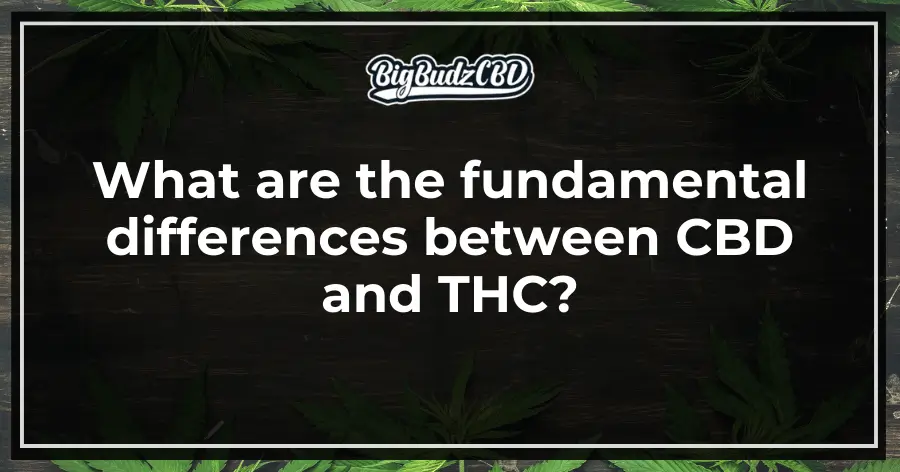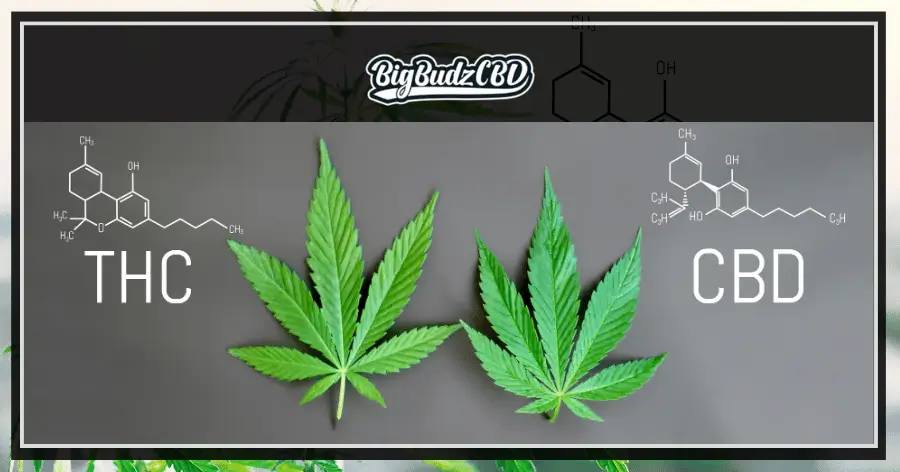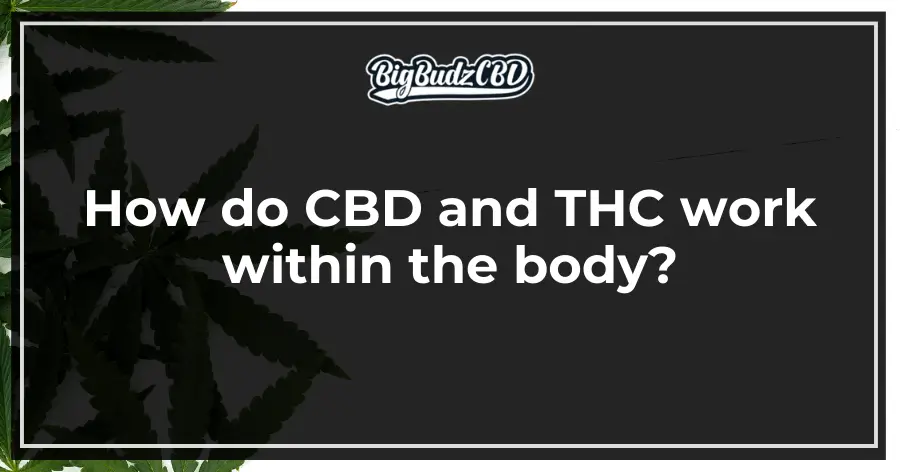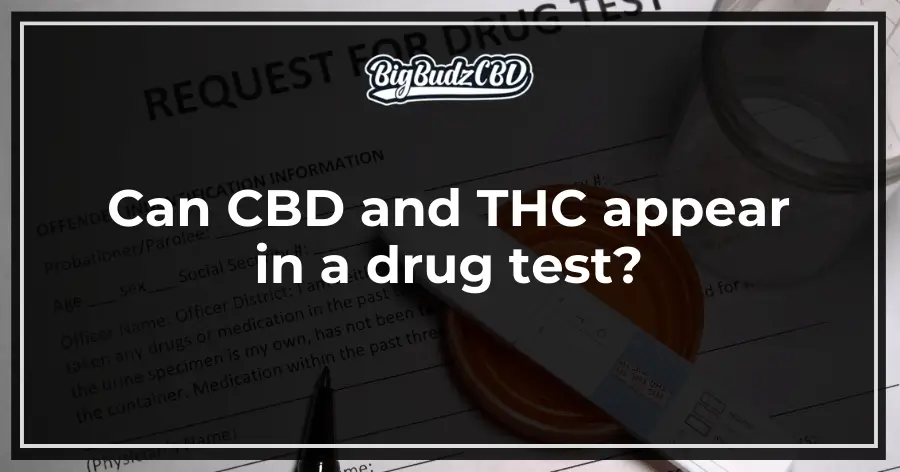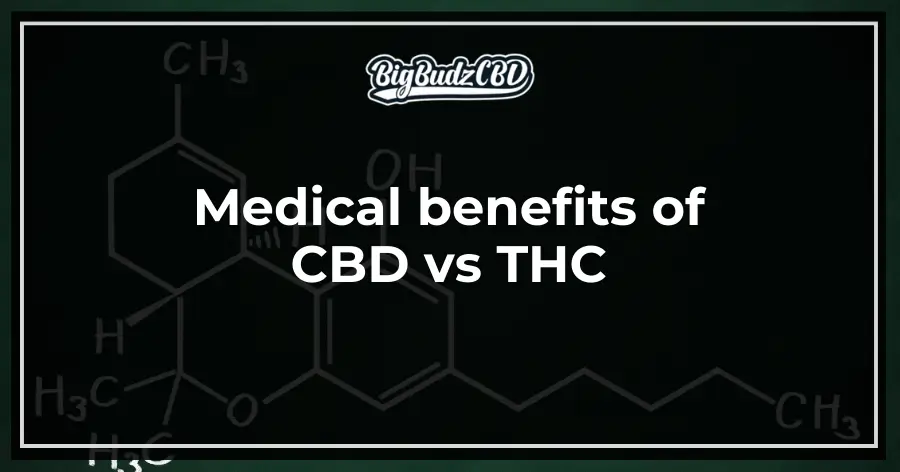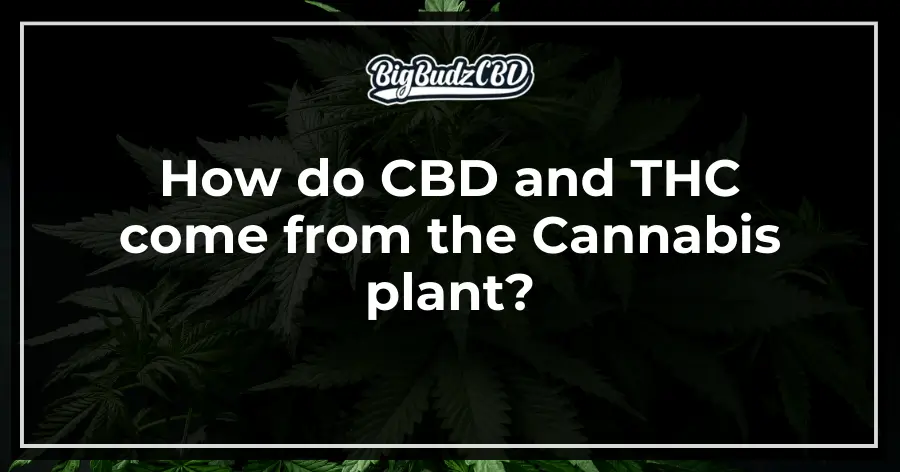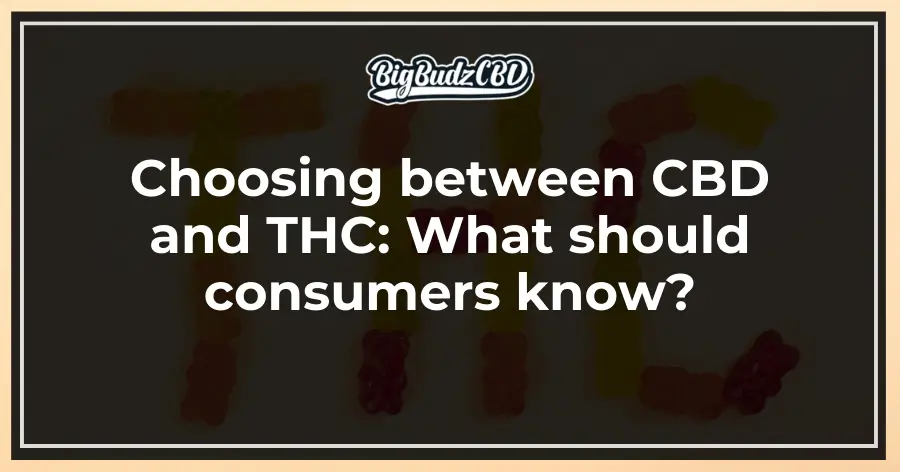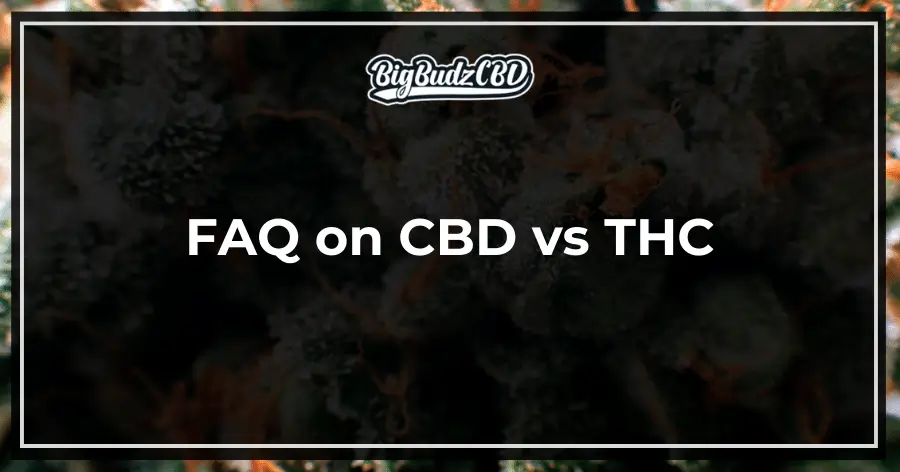Welcome to Big Budz CBD’s comprehensive guide on CBD vs THC, two cannabinoids derived from cannabis or hemp.
In this article, we will explore the differences between CBD and THC, their effects, uses, and legal status.
Whether you’re curious about the therapeutic potential of CBD oil or exploring the world of CBD products, this article will provide you with some valuable insights.
Key Takeaways:
- CBD and THC are cannabinoid compounds derived from cannabis and or hemp.
- CBD is non-psychoactive, while THC has psychoactive effects.
- CBD and THC interact with the endocannabinoid system in the body.
- CBD and THC have different legal statuses and restrictions.
- Both CBD and THC have potential medical benefits.
What are the fundamental differences between CBD and THC?
In this section, we will explore the key differences between CBD and THC, which are the two most popular cannabinoids found in cannabis and hemp.
Understanding these distinctions is crucial for consumers looking to make informed decisions about cannabis and hemp products.
Understanding the psychoactive effects of THC vs CBD
One of the most significant contrasts between CBD and THC lies in their psychoactive differences.
THC is known for its ability to produce a “high” or euphoric sensation, making it popular among recreational marijuana users.
On the other hand, CBD does not induce psychoactive effects and does not alter one’s state of mind, per say.
This makes CBD a more favorable option for those seeking the potential benefits of cannabis (hemp) without the intoxicating effects typically associated with THC.
Chemical structure of cannabinoid and cannabidiol
The chemical structure of CBD and THC also differs.
Both compounds belong to a group of chemicals called cannabinoids, which interact with the body’s endocannabinoid system.
However, the arrangement of atoms in their chemical structures gives them distinct properties.
THC has a cyclic ring structure that binds tightly to cannabinoid receptors in the brain, leading to its psychoactive effects.
In contrast, CBD has a slightly different structure that does not bind as strongly to these receptors, explaining its non-intoxicating nature.
| Compound | Chemical Structure | Psychoactive Effects |
|---|---|---|
| CBD (Cannabidiol) | 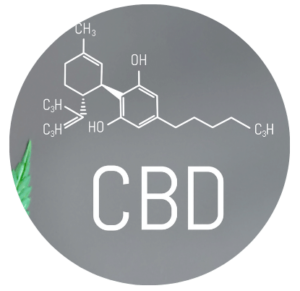 |
No psychoactive effects |
| THC (Tetrahydracannabidiol) | 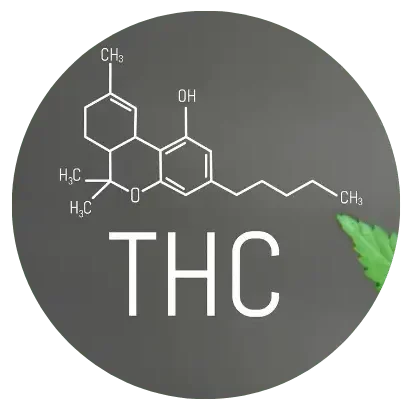 |
Potential psychoactive effects |
Legal status: Federal law and the 0.3 percent THC rule
The legal status of CBD and THC is influenced by federal laws and regulations.
Under federal law, marijuana, which contains high levels of THC, remains classified as a Schedule I controlled substance.
However, hemp-derived CBD, with less than 0.3 percent THC, was legalized with the passage of the 2018 Farm Bill.
This distinction allows for the legal production, sale, and consumption of CBD products derived from hemp.
It is important to note that individual state laws may vary, and some states have different regulations regarding the legality of both CBD and THC sales and consumption.
Therefore, consumers should familiarize themselves with the laws in their specific state before purchasing or using these products.
How do CBD and THC work within the body?
Now, let’s explore the mechanisms of action of CBD and THC within the body and how they interact with the endocannabinoid system.
Understanding how these compounds work is crucial to grasping their effects on the brain and nervous system.
The role of the endocannabinoid system in cannabis use
The endocannabinoid system is a complex network of receptors, enzymes, and endocannabinoids that regulate various bodily functions, including mood, sleep, appetite, and pain.
When CBD and THC enter the body, they interact with the endocannabinoid system, affecting its signaling and influencing several physiological processes.
Effects of THC and CBD on the brain and nervous system
Both THC and CBD can exert different effects on the brain and nervous system.
THC, being psychoactive, binds to cannabinoid receptors in the brain, leading to the typical “high” associated with cannabis use.
On the other hand, CBD does not bind directly to these receptors but can indirectly influence their activity, producing a range of potential therapeutic effects.
CBD may help versus CBD doesn’t work: Debunking myths
There are many myths and misconceptions surrounding the therapeutic potential of CBD.
Let’s debunk a few of them:
- Myth 1: CBD gets you high like THC – False. CBD is non-psychoactive and does not produce the euphoric effects associated with THC.
- Myth 2: CBD is addictive – False. CBD is not addictive and does not cause dependency.
- Myth 3: CBD doesn’t have any medicinal benefits – False. CBD has shown potential therapeutic effects in various conditions, including epilepsy, anxiety, and chronic pain.
- Myth 4: CBD and THC are the same – False. While they are both cannabinoids derived from cannabis, CBD and THC have distinct properties and effects on the body.
By debunking these myths, we can better understand CBD’s true potential and ensure accurate information reaches consumers.
Now, this doesn’t mean that every person will be affected by CBD in the same way… some people may feel the benefits right away, and some might not feel anything at all.
| Myth | Fact |
|---|---|
| Myth 1: CBD gets you high like THC | False. CBD is non-psychoactive and does not produce the euphoric effects associated with THC. |
| Myth 2: CBD is addictive | False. CBD is not addictive and does not cause dependency. |
| Myth 3: CBD doesn’t have any medicinal benefits | False. CBD has shown potential therapeutic effects in various conditions, including epilepsy, anxiety, and chronic pain. |
| Myth 4: CBD and THC are the same | False. While they are both cannabinoids derived from cannabis, CBD and THC have distinct properties and effects on the body. |
Can CBD and THC appear in a drug test?
In this section, we will explore the potential presence of CBD and THC in drug tests.
It is important for individuals who use cannabis or hemp-derived products to understand the implications these substances may have on drug test results.
What products may cause a positive drug test result?
When it comes to drug tests, it’s not just THC that can trigger a positive result.
Other compounds found in cannabis and hemp-derived products, including CBD, may also lead to a positive drug test result, depending on the sensitivity of the test and what the cannabinoid-based product is derived from.
While pure CBD products should not contain THC, it’s important to note that some CBD products may contain trace amounts of THC, ideally within legal limits.
Additionally, marijuana-derived CBD products with higher levels of THC carry a higher risk of causing a positive drug test.
One surefire CBD product that is certain not to cause a test to show THC is a CBD isolate product.
Understanding the detection of hemp-derived CBD products
Different drug tests have varying sensitivity levels when it comes to detecting THC and CBD.
Most standard drug tests are designed to detect THC, the psychoactive compound found in cannabis.
However, these tests do not specifically target CBD.
It is worth noting that hemp-derived CBD products, which contain 0.3% or less THC, should not typically trigger a positive drug test result.
Nevertheless, some highly sensitive tests may detect even trace amounts of THC, so it’s important to exercise caution when consuming any CBD products.
But it’s also been said that even poppy seeds can cause a positive drug test… so be careful.
Differentiating between marijuana-derived CBD and hemp-derived CBD in tests
Drug tests cannot differentiate between marijuana-derived CBD and hemp-derived CBD.
Both forms of CBD may contain THC, although marijuana-derived CBD products are going to have higher THC levels for sure.
As a result, both types of CBD products carry the risk of causing a positive drug test.
Individuals who are subject to drug tests must be aware of the source and composition of the CBD products they consume, as well as the potential THC levels they may contain.
Medical benefits of CBD vs THC
In recent years, CBD and THC have gained significant attention for their potential medical benefits.
Both compounds have shown promise in providing relief for various health conditions.
So, let’s explore the evidence-based health benefits of CBD and discuss the use of THC for medical cannabis patients.
We will also examine the benefits and considerations of nonprescription CBD products.
Evidence-based health benefits of CBD
CBD has been the subject of numerous studies, highlighting its potential therapeutic uses.
Research has shown that CBD may have anti-inflammatory properties, making it possibly beneficial for arthritis and multiple sclerosis.
Additionally, CBD has shown promise in managing symptoms associated with epilepsy, including possibly reducing the frequency and severity of seizures.
Other potential health benefits of CBD include anxiety and stress relief, pain management, and improved sleep quality.
THC for medical cannabis patients
While THC is known for its psychoactive effects, it also carries medical benefits for certain patients.
Medical cannabis containing THC has been used to alleviate symptoms associated with chemotherapy, such as nausea and appetite loss.
Additionally, THC has shown potential in reducing muscle spasms and pain associated with conditions like multiple sclerosis and spinal cord injuries.
It is important to note that the use of THC for medical purposes often requires a prescription and should be done under the guidance of a healthcare professional.
Nonprescription CBD products: Are they beneficial?
The popularity of CBD has led to the availability of nonprescription CBD products in various forms, including oils, capsules, and topicals.
While these products offer convenience and accessibility, evaluating their quality and effectiveness is essential.
Not all nonprescription CBD products are created equal, and it’s crucial to choose products from reputable brands (like BigBudzCBD) that provide third-party lab testing and ensure the purity and potency of their CBD.
Additionally, it’s important to consider individual needs and consult with a healthcare professional before incorporating nonprescription CBD products into your wellness routine.
| Medical Benefits | CBD | THC |
|---|---|---|
| Anxiety and stress relief | ✓ | |
| Pain management | ✓ | |
| Anti-inflammatory properties | ✓ | |
| Epilepsy management | ✓ | |
| Reduction of muscle spasms | ✓ | |
| Relief from chemotherapy side effects | ✓ |
While CBD offers a wide range of potential health benefits, THC can provide relief for specific conditions.
It is important to consult with a healthcare professional to determine which compound is suitable for your medical needs.
Additionally, when considering nonprescription CBD products, research and choose products from reputable brands to ensure safety and efficacy.
How do CBD and THC come from the Cannabis plant?
In order to understand CBD and THC, it is important first to explore their origins within the cannabis plant.
Cannabis is a diverse genus of flowering plants that encompasses both hemp and marijuana.
While they share the same plant family, there are distinct differences between these two varieties.
Differences between hemp and marijuana
Hemp and marijuana are two different strains of the cannabis plant.
The main differentiating factor between the two is the levels of THC, the psychoactive compound found in cannabis, and CBD, a non-intoxicating compound known for its therapeutic properties.
Hemp is typically cultivated for its high CBD content and legally must contain less than 0.3% THC.
Marijuana, on the other hand, is bred for its high THC content, making it psychoactive and sometimes used for recreational purposes.
Extraction methods: How CBD and THC are derived.
Once the cannabis plant is harvested, CBD and THC can be extracted from the plant material through various methods.
The most commonly used extraction methods include:
- Solvent Extraction: This method involves using a solvent such as ethanol or CO2 to extract the cannabinoids from the plant material. The solvent is then evaporated, leaving behind CBD or THC in a concentrated form.
- CO2 Extraction: This method uses pressurized carbon dioxide to extract CBD or THC from the plant material. It is considered to be a clean and efficient method, resulting in a high-quality extract.
- Steam Distillation: This method involves heating the plant material to release the CBD or THC into steam. The steam is then condensed, separating the cannabinoids from the other components of the plant, such as the waxes and terpenes.
Understanding Levels of THC and CBD in Cannabis Products
The levels of THC and CBD can vary significantly in different cannabis products. CBD-dominant products, such as CBD oils or capsules, have higher levels of CBD and minimal THC content.
On the other hand, THC-dominant products, such as marijuana flowers or edibles, have higher levels of THC and lower CBD content.
Consumers need to be aware of the THC and CBD levels in the products they purchase, as this can impact the effects and potential legal implications.
Lab testing and product labeling can provide valuable information about the cannabinoid profile of a specific product.
Choosing between CBD and THC: What should consumers know?
When it comes to deciding between CBD and THC, understanding their therapeutic uses is essential.
Both compounds offer unique benefits, and evaluating your needs can help you make an informed choice.
CBD is known for its potential to manage anxiety, stress, and inflammation, while THC is commonly used for pain relief, nausea, and appetite stimulation.
It’s crucial to consider the legal considerations surrounding CBD and THC, especially under state laws.
While CBD derived from hemp is federally legal, THC is still classified as a controlled substance in many states. Be sure to check the local regulations to ensure compliance before deciding.
Navigating the market can be overwhelming, but there are ways to identify quality CBD products.
Look for products tested by third-party laboratories to verify their potency and purity.
Additionally, read customer reviews and seek recommendations from trusted sources to ensure you get a reputable product.
FAQ for CBD vs THC
What’s the difference between CBD and THC in marijuana and hemp products?
THC (tetrahydrocannabinol) is the primary psychoactive compound found in the cannabis plant, which produces the “high” associated with marijuana use.
CBD (cannabidiol), on the other hand, is a compound found in cannabis sativa (which includes both marijuana and hemp) that is non-psychoactive and has been suggested to have various health benefits.
While marijuana plants contain more THC, hemp plants are typically higher in CBD and contain less CBD than marijuana.
It’s important to note that the legal status, uses, and potential side effects of these compounds can vary, and more research is needed to understand their effects on the body fully.
Can CBD and THC be found in the same cannabis products?
A: Yes, CBD and THC can both be found in the cannabis plant, and many products contain a combination of the two.
However, the concentration of each compound varies significantly between marijuana and hemp-derived products.
Products that contain more THC are generally derived from marijuana plants, while those with higher levels of CBD are usually derived from hemp.
The ratio of CBD to THC in a product can significantly affect its effects on your body, so it’s crucial to check the content if seeking a specific experience or benefit.
Additionally, the labeling of these products may be inaccurately labeled, so sourcing from reputable producers is important.
Is it legal to use CBD and THC everywhere in the United States?
A: The legality of CBD and THC varies depending on federal and state laws. As of my last update, THC is considered a Schedule I drug under federal law, making its use and possession illegal on a federal level.
However, many states have legalized THC for medical and/or recreational use under certain conditions.
On the other hand, hemp-derived CBD with less than 0.3% THC is legal on a federal level but might still be illegal under some state laws.
It’s crucial to check local regulations before purchasing or using CBD or THC products. Keep in mind that the legal landscape is constantly evolving.
How does CBD work in the body, and what are its potential benefits?
CBD works by interacting with the body’s endocannabinoid system (ECS), which plays a role in regulating various physiological functions such as pain, mood, appetite, and sleep.
Unlike THC, CBD does not produce a high, but it may offer potential health benefits, including reducing anxiety, easing pain, and improving sleep.
Preliminary research suggests that CBD could have significant health benefits, but more studies are needed to fully understand its effects and potential applications.
It’s important to note that while some CBD products are approved by the Food and Drug Administration (FDA) for specific medical conditions, most are not, and the FDA advises caution due to the lack of comprehensive research.
Are there any potential side effects associated with using CBD or THC?
Yes, both CBD and THC can have potential side effects, though they generally differ due to the psychoactive properties of THC.
Common side effects of THC include altered senses, mood changes, difficulty with coordination, and in some cases, anxiety or paranoia.
CBD is generally well-tolerated, but some individuals may experience dry mouth, dizziness, or changes in appetite or weight.
It’s also worth noting that CBD and THC can interact with other medications.
Given the variance in individual responses and the potential for side effects, it’s recommended to consult a healthcare professional before using products containing these compounds, especially for therapeutic purposes.
How are CBD and THC regulated, especially in products for sale?
In the United States, the Drug Enforcement Administration (DEA) classifies marijuana and its psychoactive compounds, including THC, as Schedule I controlled substances.
However, CBD derived from hemp with less than 0.3% THC is not classified under the same category and is legally permissible on a federal level for manufacture, sale, and consumption, thanks to the 2018 Farm Bill. Despite federal laws, state regulations can vary significantly.
The FDA oversees CBD products, but as of the last update, it only approved one cannabis-derived and three cannabis-related drug products for medical use.
Most other CBD products, especially those sold online or in stores, are not FDA-approved; thus, their content is not regulated or verified by any federal agency.
This lack of oversight means consumers must exercise caution and perform due diligence when selecting products.
Can CBD be derived from both marijuana and hemp? What are the differences?
Yes, CBD can be derived from both marijuana and hemp plants as they are both members of the Cannabis sativa species. However, there are critical differences in the average CBD content of these plants.
Hemp plants are specifically cultivated to contain high amounts of CBD and have legally defined limits of THC content (less than 0.3%), making them the primary source for CBD products.
In contrast, marijuana plants generally contain lower levels of CBD and higher THC levels, which is why they are used less frequently for producing CBD products.
The source of CBD can influence its legal status and potential use, so understanding the origin and content of CBD products is essential for consumers.



